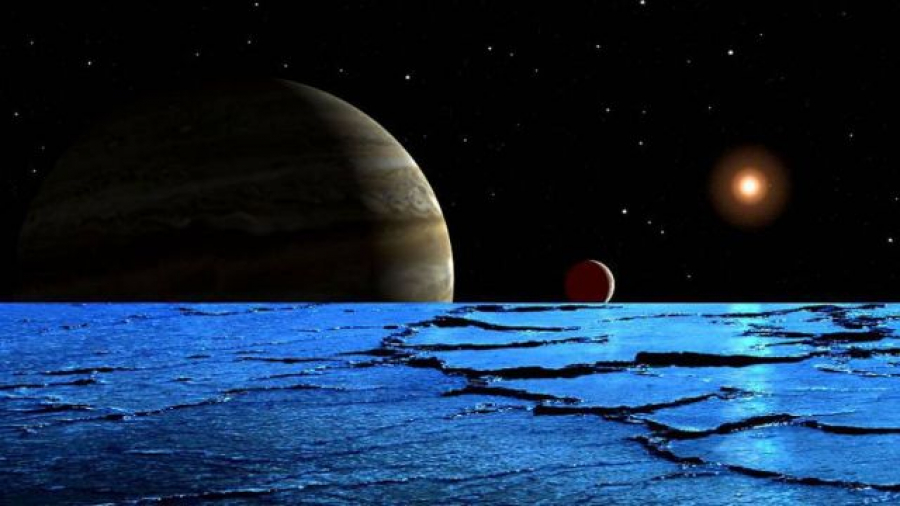Hydrogen is the most common element in the universe, where it makes about 90% of atoms or 75% of the mass of ordinary matter. About 10% of atoms are helium and all other elements are about 1%.
Of this, slightly less than half is oxygen, the third most common element in Cosmos. So it is not surprising that water is everywhere in the Universe.
Looking at the oceans of our planet, or its picture from Space, it is hard to escape the impression that it has the largest quantity of water in the Solar system. But Jovian moon Europe, covered with water ice, has long been known for its subsurface ocean, which contains more liquid water than is present on the entire planet Earth.
For many years it was assumed that the water on the icy satellites of Jupiter and Saturn was just frozen crust, solid up to their cores. But astronomers found shreds of evidence that deep in the interior, due to the thermal activity of the core, there are vast oceans of liquid water.
The first is identified under the ice of the Galilean satellite Europa, whose observations with the Hubble Space Telescope revealed two geyser-like eruptions ejecting water to an altitude of 50 km above the moon’s surface in 2014, and 100 km in 2016.
The results of the "Galileo" spacecraft, orbiting Jupiter 1990-2000, indicated also that two other Jupiter's Galilean satellites, Ganymede and Callisto, could also have oceans deep below the ground.
The measurements from the spacecraft "Kasini", found pieces of evidence that Saturn's moon Enceladus also has such an internal ocean deep beneath its surface, as well as Saturn's largest satellite, Titan.
Recent research suggests that the dwarf planets, Ceres and Pluto could also have oceans beneath their surfaces. There is also water on planet Mars, visible in polar caps. While in the southern one is mainly from, carbon dioxide, in the northern water dominates.
So, far from being rare outside of Earth, water is present in many places in the Solar system, our galaxy and the Universe as a whole.
By Milan S. Dimitrijevic

The author was the director of Belgrade Astronomical Observatory 1994-2002. Editor in Chief of ''Serbian Astronomical Journal'' (and its precursor) and of Publications of Astronomical Observatory of Belgrade 1987-2002, President of Astronomical Society ''Rudjer Boskovic'' 1982-2004, Editor in Chief of the journal „Vasiona (Universe)“ 1985-2004, President of the Society of Astronomers of Serbia 2008-2014. Federal Minister for Science, Technology and Development 1993-94. Since 2009, Affiliated Fellow of the Paris Observatory in the Laboratoire d' Etudes du Rayonnement et de la Matière en Astrophysique. Member of the Association of Writers of Serbia (2008). Member of the Governing Board of Euro-Asian Astronomical Society, Member of the Council of European Astronomical Society (2008-2012). Author of ~ 200 papers in international scientific journals and of more than ten books. He is co-author of a secondary school textbook on Astronomy, author of books of Poetry ''Poetry'', which is translated on Bulgarian and of the anthology of cosmically inspired verses ''Cosmical Flower''. He is scenarist, director and protagonist of more than ten TV series on Astronomy and of numerous emissions.
Milan S. Dimitrijevic is a member of the Scientific Committee of the International Water Conference.














